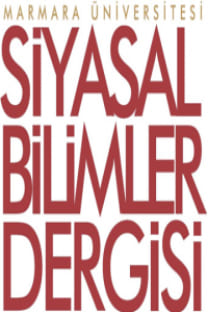Donald Trump’ın Başkanlığında İran Elitlerinin Kore Krizi’ne İlişkin Algılarında Süreklilik ve Değişim
Kuzey Kore, Nükleer program, İranlı entelektüeller, JCPOA, Donald Trump
Continuity and Change in the Perception of Iranian Elites toward the Korean Crisis in Donald Trump’s Presidency
North Korea, Nuclear program, Iranian intellectuals, JCPOA, Donald Trump,
___
- Aminabadi, S.M. (2013, April 18). United states- North Korea: Roots of the Crisis. Keyhan newspaper, P. 5.
- Appleman, Roy E (1998). South to the Naktong, North to the Yalu. New York: United States Army Center of Military History Publication.
- Baeidinejad, H. (2018). The Trump-Kim Summit. Retrieved on 10/10/2018 from : https://www.instagram.com/hamid_baeidinejad.
- Baghi, M. (2017). Three scenarios for dealing with North Korea. World economy Research Institute Forum, Retrieved on 30/1/2018 from: https://www.donya-e-eqtesad.com/fa/tiny/news-3320590.
- Baqi, Malak Salim (2018). The Korean Conflict, International Security Seminars. Retrieved on 3/11/2019 from: https://www.researchgate.net/profile/Malak_Baqi/publication/329630196_The_Korean_Conflict/links/5c12f6bd299bf139c756c4d9/The-Korean-Conflict.pdf.
- Barzegar, K. (2018, June 13). The Minimum Agreement, Shargh Newspaper, P. 12.
- Bashari, I. (2017). The Dimensions and Reasons for the Verbal Tension between Washington and Pyongyang: The Different Levels of the North Korean Oil Sanctions. Iranian Labours News Agency (ILNA). Retrieved on 2/3/2018 from: https://www.ilnanews.com/fa/tiny/news-539010.
- Campbel, J (2014). The Wrong War: The Soviets and the Korean War. International Social Science Review, 88 (1): 1-28.
- Cumings, B. (2010). The Korean War: A History, New York: Modern Library
- Danesh Yazdi, M. (2013). How North Korea Became a Nuclear State? Iranian Diplomacy blog Retrieved on 2/4/2018 from: http://www.irdiplomacy.ir/fa/page/1915935/کره+شمالی+چگونه+هسته+ای+شد؟.html.
- Gol Anbari, S. (2018). Why Trump says Iran is not the former country? Iranian diplomacy blog. Retrieved on 24/9/2018 from: http://www.irdiplomacy.ir/fa/news/1978100/چرا-ترامپ-می-گوید-ایران-دیگر-آن-کشور-سابق-نیست.
- Harvey, L. (2019), Discourse analysis, Social Research Glossary. Retrieved on 3/11/2019 from: http://www.qualityresearchinternational.com/socialresearch/
- Iranmhr, S. (2018). What is important about Kim-Trump summit? Retrieved on 11/9/2018 from: https://medium.com/@maslub.maslub/چه-چیزِ-مذاکره-اون-و-ترامپ-مهم-است-161800.
- Karimi, Gh. (2018). The United States and the Limitation of Options toward North Korea. IRNA news agency. Retrieved on 12/3/2018 from: http://www.irna.ir/fa/News/82669461.
- Kebriaei Zadeh, H. (2018). JCPOA Lessons for North Korea's talks with the United States. Abrare Moasere International Research Institute. Retrieved on 12/12/2018 from: www.tisri.org/default-2746.aspx.
- Mahoney, J and Rueschemeyer, D. (2003). Comparative Historical Analysis in the Social Sciences, Cambridge: Cambridge University Press
- Mansouri, J. (2018). The trade war between the United States and China is rooted in the North Korean crisis. Young Journalists Club News Agency. Retrieved on 17/5/2018 from: https://www.yjc.ir/fa/print/6492822.
- Mottaghi, E. (2018). North Korea is far different from Iran, Young Journalists Club News Agency. Retrieved on 16/10/2018 from: https://www.yjc.ir/00ICnN.
- Mousavian, S.H. (2017, October 10). Préservons l’accord sur le nucléaire iranien, c’est le modèle à suivre avec la Corée du Nord. Le Monde, P. 8.
- Musavi, H. (2018). Iran and the Negotiations between Un and Trump. Aftab Yazd News Agency Blog. Retrieved on 20/3/2018 from: http://aftabeyazd.ir/?newsid=101098.
- Musavi, S.R (2018). Trump wants to be the main part of JCPOA, ISNA news agency. Retrieved on 30/8/2018 from: https://www.isna.ir/news/97040200666/.
- Neto, O & Rodriguez, J (2016). The new comparative-historical method and its contributions to political science and public administration, Rev. Adm. Pública, 50(6):1003-1026.
- Northwestern University (2019), Comparative-Historical Analysis, Northwestern University Website. Retrieved on 28/9/2019 from: https://www.polisci.northwestern.edu/research/subfieldspecialties/comparative-historical-studies.html.
- Poursina, B. (2017). The Relationship between North Korea's Crisis and U.S. Policies toward JCPOA. IRNA news agency blog. Retrieved on 12/7/2018 from: http://www.irna.ir/fa/News/82671347.
- Reuters, (2017). Merkel suggests Iran-style nuclear talks to end North Korea crisis” Reuters News. Retrieved on 29/2/2018 from: https://www.reuters.com/article/us-northkorea-missiles-germany/merkel-suggests-iran-style-nuclear-talks-to-end-north-korea-crisis idUSKCN1BK0WU.
- Rezaei, M. (2018). Trump and Military Option toward North Korea. Abrare Moasere International Research Institute. Retrieved on 10/09/2018 from: http://www.tisri.org/default-2727.aspx.
- Rezaei, M. and Farahzadeh, M. (2018) The issue of uncertainty in the analysis of the crisis between North Korea and the United States. Quarterly Journal of Foreign Policy, 31 (4): 101-150
- Sajedi, M. (2017), The North Korean Crisis: U.S. excuse for its presence in East Asia. Young Journalists Club News Agency. Retrieved on 30/10/ 2018 from: https://www.yjc.ir/fa/news/6319349/بحران-کره-شمالی-بهانه-تشدید-حضور-آمریکا-در-شرق-آسیا.html.
- Shafiei, N. (2018). The North Korean Crisis: U.S. excuse for presence in Eastern Hemisphere, Hamshahri News. Retrieved on 12/2/ 2018 from: http://hamshahrionline.ir/details/366950/world/views. Accessed
- Shahmoradi, H. (2017). The Analysis of Korean Reunification Possibility and Its Probable Effects on the National Interests of Islamic Republic of Iran. (Unpublished master's thesis), School of International Relations affiliated with Ministry of Foreign Affairs, Tehran, Iran
- Shariatinia, M. (2018, April 28.). Like the Arab Spring? Etemad News Paper, P. 3.
- Shokuhi Nasab, H. (2017). North Korean crisis and the dangers of continuing tensions. IRNA news agency blog. Retrieved on 12/8/2018 from: http://www.irna.ir/fa/News/82673203.
- Soltanpour, M. (2017). The Probable Consequences of Second Korean War. Iranian Diplomacy blog Retrieved on 30/5/2018 from: http://irdiplomacy.ir/fa/page/1971822.html.
- Souri, R. (2018). Does North Korea really stop its nuclear program? Jamaran News Blog. Retrieved on 18/9/2018 from: https://www.jamaran.ir/fa/tiny/news-890675.
- Washington Post (2017). Americans Trust U.S. Military Generals More than Trump. Retrieved on 8/2/2018 from: https://www.washingtonpost.com/politics/poll-far-more-trust-generals-than-trump-on-n-korea-while-two-thirds-oppose-preemptive-strike/2017/09/23/5cc4377c-9fbb-11e7-8ea1-ed975285475e_story.html.
- Zare, M (2017). East Asia and the Future of the International System. The Institute for Iran-Eurasia Studies Blog. Retrieved on 10/10/2018 from: http://www.iras.ir/fa/russia/www.iras.irfa/doc/note/3344/شرق-آسیا-آینده-نظام-بین-الملل.
- Zare, M. (2018). The outlook for the crisis on the Korean Peninsula, Abrare Moaser International Research Institute. Retrieved on 14/10/2018 from: http://www.tisri.org/default-2530.aspx.
- Yayın Aralığı: Yılda 2 Sayı
- Başlangıç: 2013
- Yayıncı: Marmara Üniversitesi
Mohammad Reza DEHSHIRI, Hossein SHAHMORADI
Fransa’da Yerel Yönetimlerce Kullanılan Anayasal Bir Araç: Deney
Avrupa Birliği Doğu Ortaklığı Projesinin Gürcistan’a Etkisi
Ali Onur ÖZÇELİK, Sopiko ZANDARADZE
Bosna Hersek'te Kadınların Siyasal Hayata Katılımı ve Temsil Edilmesi: 2014 ve 2018 Genel Seçimleri
“Realist” İdealizm? 1977-1978 Senelerinde ABD-Suudi Arabistan İlişkileri Üzerine Bir Değerlendirme
Fransa’da Değişen Siyasal Paradigma Çerçevesinde Radikal Solun Yükselişi
Şenol ARSLANTAŞ, Düzgün ARSLANTAŞ
Kamu Bilgisine Erişim Düzenlemeleri ve Açık Devlete Etkileri: Türkiye Örneği
Türk Dış Politikasında Parti Rekabeti: Rakip Partilerin Politika Revizyonlarını Anlamak
Yerel Yönetimlerde Çocuk Katılımı: Kâğıthane Çocuk Meclisi Örneği
